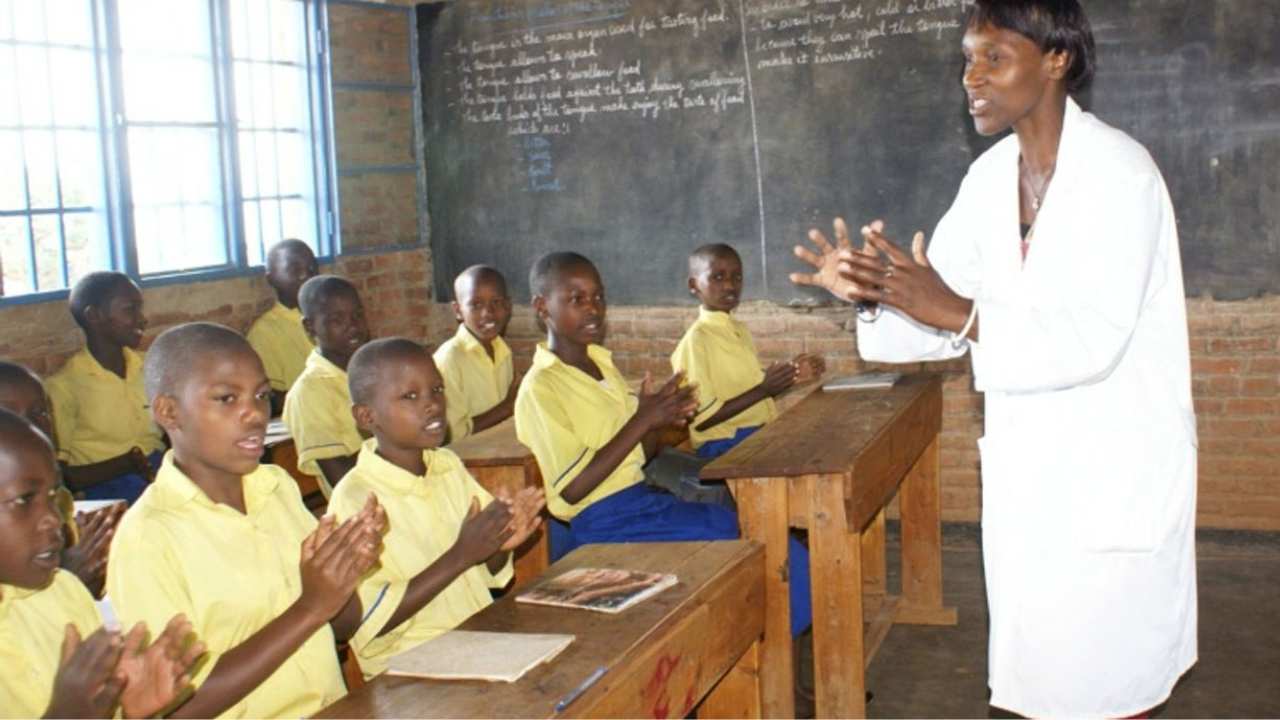If the popular saying, “today’s children are the leaders of tomorrow” is anything to believe, the quality of the future leaders being prepared now by the six area councils in the Federal Capital Territory (FCT) is something to considerably worry about; placing the collective vision of the country on a critical edge. Posterity shall never forgive any past generations that prepared and produced half-baked leaders. It’s most unfortunate that primary school teachers in the FCT, once again, commenced indefinite strike action on Monday, January 15, 2024, to protest, among others, the failure of the area council chairmen to pay arrears of 25 months’ new national minimum wage owed them.
The General Secretary of the FCT wing of the Nigeria Union of Teachers (NUT), Comrade Margaret I. Jethro, told reporters that, as of the time the strike began, only teachers in Abaji Area Council had received their December 2023 salary. Definitely, the repeated strikes by the FCT primary school teachers have remained unresolved for too long. For instance, they resumed their suspended strike over owed allowances on Wednesday, January 26, 2022.
Before then, the teachers had on November 8, 2021, embarked on a five-day warning strike after which they proceeded on an indefinite strike as no response to their demands came from the area councils. The strike was later suspended on December 1, 2021, with an understanding by both parties to meet on December 13, 2021; a meeting the area council chairmen shunned. Even the meetings fixed for January 13, 2022, and January 21, 2022, both failed as the area council chairmen refused to turn up. Again, the teachers on September 11, 2023, embarked on an indefinite strike, which, following the intervention of the FCT Minister, Nyesom Wike, suspended it on October 2, 2023, for six weeks; to allow for the resolution of the issues.
At a recent meeting to resolve the crisis, the FCT minister offered to pay 40 per cent of the over N70bn required to settle the teachers’ minimum wage arrears and called upon the area council chairmen to work out modalities to pay the remaining 60 per cent in three instalments. Comrade Jethro told journalists that the unwillingness of council chairmen to agree to pay 60 per cent led to the deadlock at the meeting. This unfriendly attitude of the area council chairmen is not only counter-productive but also inimical to the improvement of education at the basic level in the FCT.
- NIGERIA DAILY: Consequences of Tinubu’s Economic Policies on Nigerians
- Nigeria’s security: A call for a double buy back arms initiative
Incessant strikes by teachers in the FCT public primary schools have adverse effects on the pupils in affected schools. For example, this group of learners in the FCT that spend more time at home than they attend school, learn from the same curriculum contents and write the same examinations as their counterparts in private schools within the FCT as well as other public primary schools where teachers seldom go on strikes.
We condemn the FCT area councils for allowing strikes to become the norm on the academic calendar of their primary schools, which even after managing to recover from the COVID-19 pandemic, are still grappling with infrastructural deficits. Their attitude, perhaps, lends credence to the insinuation that their insensitivity to the plight of the teachers sprouts from the fact that their children are in public schools; and far from the consequences of the strikes.
With a national vision to build a united, strong and self-reliant nation, government at the local and even other levels cannot afford to joke with the welfare of those saddled with the responsibility of giving basic academic and moral training to young Nigerian citizens to become, sooner or later, the country’s leaders. The poor treatment of teachers, therefore, puts the future of the country and of the next generation of leaders at stake.
While we call on the area councils in the FCT to unreservedly accept to pay the 60 per cent of the total entitlements due to the teachers, and immediately work out the modalities for effecting the payment in three instalments as proposed, we urge the teachers’ union to rescind its decision to direct secondary school teachers in the FCT to join the strike in solidarity with their primary school counterparts if their demands are not met.
To save primary education in the FCT, Daily Trust calls on the striking teachers to appreciate the intervention of the FCT Minister, Nyesom Wike, by temporarily giving away their earlier position on the strike and then take the minister’s offer so that the strike could be suspended after a written agreement would have been signed by both parties.
In the event that the area councils fail to honour their side of the pact, we encourage Minister Wike to deduct from source what is due to teachers as unpaid entitlements. To secure the country’s future and the future of basic education in Nigeria, the long-standing narrative about teachers being owed legitimate entitlements for years has to change. Education is a fundamental right of the Nigerian child.

 Join Daily Trust WhatsApp Community For Quick Access To News and Happenings Around You.
Join Daily Trust WhatsApp Community For Quick Access To News and Happenings Around You.


